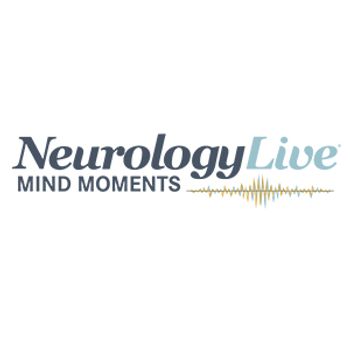
"Mind Moments," a podcast from NeurologyLive, brings you an exclusive interview with Jeffrey Cummings, MD, ScD.

Matt Hoffman, Editorial Director for NeurologyLive, has covered medical news for MJH Life Sciences, NeurologyLive’s parent company, since 2017. He executive produces the NeurologyLive Mind Moments® podcast, and hosted the Medical World News show Deep Dive. Follow him on Twitter @byMattHoffman or email him at [email protected]

"Mind Moments," a podcast from NeurologyLive, brings you an exclusive interview with Jeffrey Cummings, MD, ScD.

Compared to treatment with lisinopril, those treated with the angiotensin receptor blocker candesartan showed improvements on the Trial Making Test part A and B and Hopkins Verbal Learning Test-Revised delayed recall.

Despite a lack of effect on memory and other cognitive tasks, as measured by ADAS-Cog-11, rotigotine improved frontal cognitive function and activities of daily living in those with Alzheimer.

A trio of studies presented at AAIC 2020 suggest that consistently vaccinations for influenza and pneumonia may reduce the incidence of Alzheimer later in life, as well as mortality for older adults.

The RESPOND study steering committee member and pediatric neuromuscular neurologist at Children’s Hospital of The King’s Daughters discussed the goals of the phase 4 trial of nusinersen in SMA.

The affordable device’s accuracy compared to polysomnography may pave the way for a better way to conduct larger scale, longitudinal sleep studies.

The vice president and head of the Neuromuscular Development Unit at Biogen, and study coauthor, discussed the implications of recently published data on tofersen and the ongoing work in phase 3.

While further study is required, the data support vigilance of the symptoms and signs of acute ischemic stroke in patients with COVID-19 to reduce the burden of long-term disability.

The vice president and head of the Neuromuscular Development Unit at Biogen, and study coauthor, offered insight into the findings of a phase 1/2 trial of the SOD1-targeted antisense oligonucleotide.

Data from the Michael J. Fox Foundation’s Fox Insight study reveal a number of consequences as a result of the virus for those with chronic neurologic diseases.

"Mind Moments," a podcast from NeurologyLive, brings you an exclusive interview with Daniel Claassen, MD, MS.

A cross-sectional analysis of 2 study cohorts suggests that less rapid eye movement sleep is linked with an increased risk of all-cause mortality, which persisted across different causes of death.

The investigational Alzheimer disease agent BAN2401 will be assessed in 1400 participants who will be randomized to either the A3 trial or the A45 trial.

A retrospective analysis suggests that normalizing the spatial proximity between nearby electrodes and more extensive electrode coverage improved the accuracy of post-surgery seizure outcomes.

The head of Neurology Medical at Lundbeck Seattle Biopharmaceuticals offers perspective on the findings and what impact eptinezumab may have on migraine care.

Treatment with galcanezumab (Emgality; Eli Lilly) was associated with improvements in total pain burden for patients with both chronic and episodic migraine compared to placebo groups.

In the phase 1/2 study, the Biogen agent showed a favorable reduction of SOD1 concentrations compared to placebo, particularly with the 100-mg dose, and is being assessed in an ongoing phase 3 study, VALOR.

The National Institutes of Health program, dubbed Accelerating Leading-edge Science in ALS, or ALS2, is set to invest $25M over 5 years for exceptionally creative and riskier research.

New data suggest that peripapillary retinal nerve fiber layer thinning may be an independent and novel risk factor for conversion to multiple sclerosis in those with RIS.

Biogen’s biologics license application for aducanumab is supported by the phase 3 EMERGE and ENGAGE trials. The company has also requested a priority review designation.

The FDA accepted an NDA for Zosano’s ADAM zolmitriptan (Qytripta) in the acute treatment of migraine in early March, with a PDUFA date set for mid-October 2020.

An NIH-funded study provided supporting evidence of an association between high levels of gram-negative bacteria and a stroke-, seizure-, and headache-inducing vascular abnormality.

In the wake of the COVID-19 pandemic, health care providers and patients have had to quickly adapt to new formats of care models to promote safety while retaining care standards.

Fred Cohen, MD, offers insight on his study exploring the utility of combined Botox with anti-CGRP preventives for patients with chronic migraine.

During DBS stimulation “on” periods, all patients experienced varying degrees of dysphagia, with significant improvements when stimulation was “off.”

Kottil Rammohan, MD, director of the MS Division and Multiple Sclerosis Center of Excellence at the University of Miami, discussed the EMD Serono agent’s history and advantages for the patient community.

Notably, the cohort assessment did not identify a link between exposure to disease-modifying therapies and COVID-19 severity.

In this Peer Exchange, sleep experts provide insight into the latest narcolepsy treatments and areas that require further research.

The sBLA for onabotulinumtoxinA is supported by the findings from a randomized, double-blind phase 3 study evaluating the safety and efficacy of onabotulinumtoxinA in more than 100 pediatric patients.

"Mind Moments," a podcast from NeurologyLive, brings you an exclusive interview with Bryan Davis, PsyD, MS.